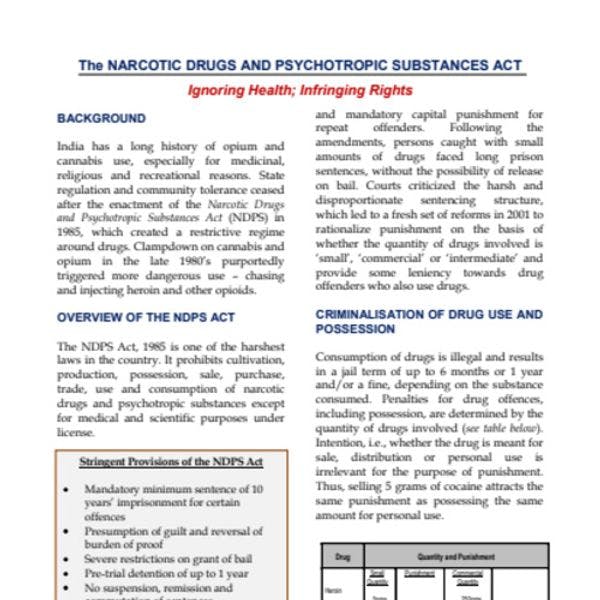The narcotic drugs and psychotropic substances act: Ignoring health, infringing rights
Background
India has a long history of opium and cannabis use, especially for medicinal, religious and recreational reasons. State regulation and community tolerance ceased after the enactment of the Narcotic Drugs and Psychotropic Substances Act (NDPS) in 1985, which created a restrictive regime around drugs. Clampdown on cannabis and opium in the late 1980‟s purportedly triggered more dangerous use – chasing and injecting heroin and other opioids.
Overview of the NDPS Act
The NDPS Act, 1985 is one of the harshest laws in the country. It prohibits cultivation, production, possession, sale, purchase, trade, use and consumption of narcotic drugs and psychotropic substances except for medical and scientific purposes under license. The Act has been amended twice; in 1989 and 2001. The first amendments in 1989 leaned towards greater stringency by introducing mandatory minimum sentences of 10 years, restrictions on bail and mandatory capital punishment for repeat offenders. Following the amendments, persons caught with small amounts of drugs faced long prison sentences, without the possibility of release on bail. Courts criticized the harsh and disproportionate sentencing structure, which led to a fresh set of reforms in 2001 to rationalize punishment on the basis of whether the quantity of drugs involved is ‘small’, ‘commercial’ or ‘intermediate’ and provide some leniency towards drug offenders who also use drugs.
Keep up-to-date with drug policy developments by subscribing to the IDPC Monthly Alert.
